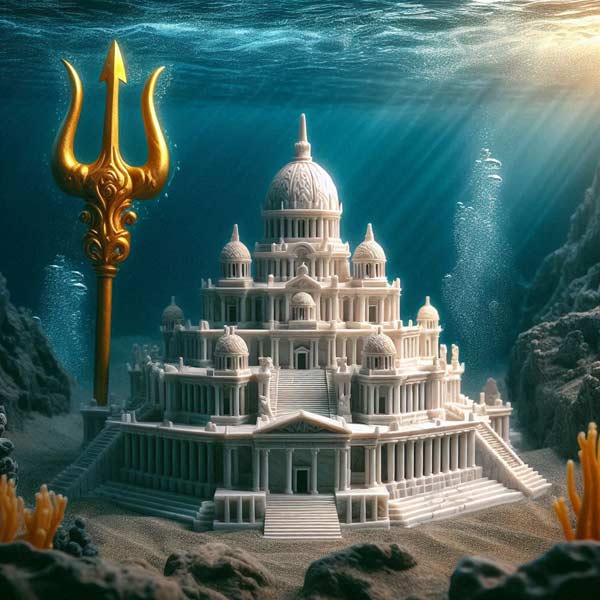Table of Contents
- Introduction
- The Legend of Atlantis
- Historical Accounts
- Theories of Location
- Archaeological Evidence
- Atlantis in Popular Culture
- Conclusion
Introduction
Atlantis, a name that conjures images of a highly advanced and mysterious civilization, has fascinated historians, archaeologists, and enthusiasts for centuries. First mentioned by the ancient Greek philosopher Plato, Atlantis is described as a powerful and technologically advanced kingdom that disappeared into the ocean depths. This blog post delves into the legend, historical accounts, various theories, and its influence on popular culture.

The Legend of Atlantis
The story of Atlantis originates from Plato's dialogues, "Timaeus" and "Critias," written around 360 BCE. According to Plato, Atlantis was a mighty and technologically superior empire located beyond the "Pillars of Hercules" (modern-day Strait of Gibraltar). The Atlanteans, described as a people of great wealth and power, fell out of favor with the gods due to their hubris and moral decay. As a result, the island was submerged into the Atlantic Ocean in a single day and night of misfortune.
Historical Accounts
While Plato's account is the most well-known, there are various interpretations and debates regarding the historicity of Atlantis. Some scholars believe that Plato's story was purely allegorical, a philosophical metaphor for the hubris of nations and the consequences of their downfall. Others argue that Plato's description may have been based on real events or locations, such as the volcanic eruption that destroyed the Minoan civilization on the island of Thera (modern-day Santorini).

Theories of Location
Numerous theories have been proposed regarding the possible location of Atlantis. Some of the most popular include:
Santorini (Thera)
Proponents of this theory argue that the Minoan eruption, which caused significant destruction and possibly a tsunami, fits Plato's description of a catastrophic event that could have inspired the Atlantis legend.
The Azores
Located in the mid-Atlantic, the Azores islands are another candidate, believed by some to be the remnants of Atlantis due to their geological features and location.
Antarctica
A more unconventional theory suggests that Atlantis was actually located in Antarctica, which was once free of ice and habitable. This theory relies on the notion of shifting continents and ancient maps, like the Piri Reis map, which some claim show Antarctica without ice.
Archaeological Evidence
Despite extensive exploration and research, definitive archaeological evidence of Atlantis remains elusive. Some underwater structures and formations, such as the Bimini Road in the Bahamas, have sparked interest and speculation, but no concrete proof has been found to confirm the existence of Atlantis as described by Plato.

Atlantis in Popular Culture
Atlantis has captured the imagination of many and has been a popular subject in literature, movies, and other forms of media. Notable examples include:
Literature
Jules Verne's "20,000 Leagues Under the Sea" and Arthur C. Clarke's "The Ghost from the Grand Banks" are among the many literary works that explore the concept of Atlantis.
Movies
Atlantis has been featured in various films, such as Disney's "Atlantis: The Lost Empire" and the science fiction film "Stargate: Atlantis."
Video Games
The legend of Atlantis also appears in video games, including the "Tomb Raider" series and "Assassin's Creed Odyssey," where players can explore the mythical city.
Conclusion
The mystery of Atlantis continues to intrigue and inspire. Whether it was a real place, a myth, or an allegory, the story of Atlantis serves as a reminder of the timeless allure of lost civilizations and the human quest for knowledge. As we continue to explore our world and uncover its secrets, the legend of Atlantis remains a fascinating chapter in our shared cultural heritage.
Interested in Greek mythology ? Visit our blog here

